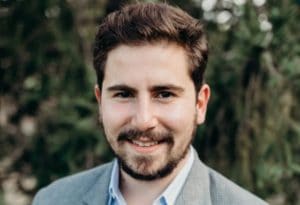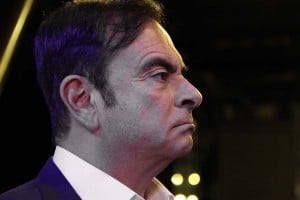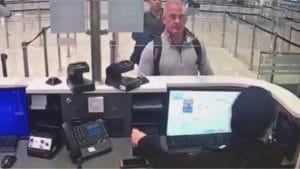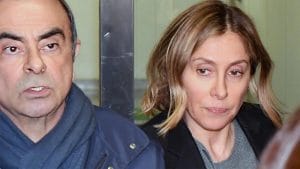
Anthony Ghosn, son of former Nissan Renault Chairman Carlos Ghosn, reportedly paid $500,000 in cryptocurrency to secure his father’s escape.
The son of former Renault-Nissan-Mitsubishi Alliance boss Carlos Ghosn used $500,000 in cryptocurrency to help his father flee from Japan where he was facing trial for corruption, according to new documents filed in federal court in Boston.
The allegation emerged as prosecutors move forward in a case made against former Green Beret Michael Taylor and his son, Peter, both accused of playing a key role in Ghosn’s escape from Japan last December.
The two men were themselves arrested in May and face the prospect of being extradited to Japan. Prosecutors in that country hope to gain custody of a number of people who allegedly assisted in the bold escape plan that reportedly saw Ghosn sneak out of Japan by hiding in a box loaded onto a Turkish cargo carrier. Once he reached Turkey, the 66-year-old executive was believed to have transferred to another plane bound for his ancestral home in Lebanon where he now resides.
(Former Green Beret, son, arrested for assisting Ghosn escape.)
Anthony Ghosn, according to prosecutors, paid $500,000 to Peter Taylor after Ghosn escaped, the money transferred through the cryptocurrency platform Coinbase. Authorities say Taylor and his father previously received a wire transfer bringing their total payment to at least $1.36 million.

Carlos Ghosn, the former Renault-Nissan Alliance chief, maintains he did nothing wrong and cannot get a fair trial in Japan.
The latest evidence submitted to the court came as prosecutors moved to prevent the Taylors from being released on bail. They were labeled a flight risk, authorities pointing to the payment and cautioning that the two men “now have access to Ghosn’s vast resources with which to flee.”
They also pointed to a recent interview with Al Aribiya TV in which Carlos Ghosn said he was helping anyone involved in his escape, which came just before the New Year in Japan.
Ghosn was arrested in November 2018, minutes after his corporate jet landed at Tokyo’s Haneda Airport. He was initially accused of concealing millions of dollars in income, prosecutors subsequently piling on a number of other accusations. Ghosn spent more than four months in detention, eventually released under strict rules limiting access to most of his family, along with the use of the Internet outside of his lawyer’s office.
The once high-flying executive has insisted that he is not guilty, asserting that he was the target of a “coup” meant to help Nissan regain control of its own operations. As part of a 1999 bailout by Renault, the French automaker gained a controlling stake in their alliance.

Former Green Beret Michael Taylor, pictured walking through security in Istanbul Airport, helped to spirit Ghosn out of Japan.
(During first interview since escaping Japan, Ghosn defends move, attacks prosecutors.)
Ghosn was expected to go on trial sometime this year, but prosecutors in that country have a conviction rate of greater than 90%, leading some critics – and especially Ghosn – to question the fairness of the Japanese judicial system.
The Brazilian-born Ghosn has claimed no one in his family was involved in his escape and, at least for now, none has been charged. But prosecutors in both the U.S. and Japan now indicate they have evidence suggesting both son Anthony and daughter Maya did play some role.
For their part, the Taylors have argued through their attorneys that the charges they would face in Japan are fatally flawed because the country does not actually call it a criminal offense to assist someone jumping bail as long as they are not in custody.
Attorney Paul Kelly countered prosecutors saying “There is no chance that these guys flee.”
In a June bail hearing, it was noted that the Taylors had returned to the U.S. on their own, even though Japan had issued arrest warrants. Attorneys said the two men could have stayed in Lebanon, which has no extradition treaty with Japan
Along with the Taylors and Carlos Ghosn, Japanese authorities have issued an arrest warrant for the former executive’s wife Carole. She also remains in Turkey, out of reach of the Japanese.
(One year after arrest, Carlos Ghosn fires back.)
Separately, authorities in Turkey in May arrested seven others – including four pilots and two flight attendants – for allegedly assisting in Ghosn’s escape. Another employee of a Turkish airline was arrested earlier this year.

